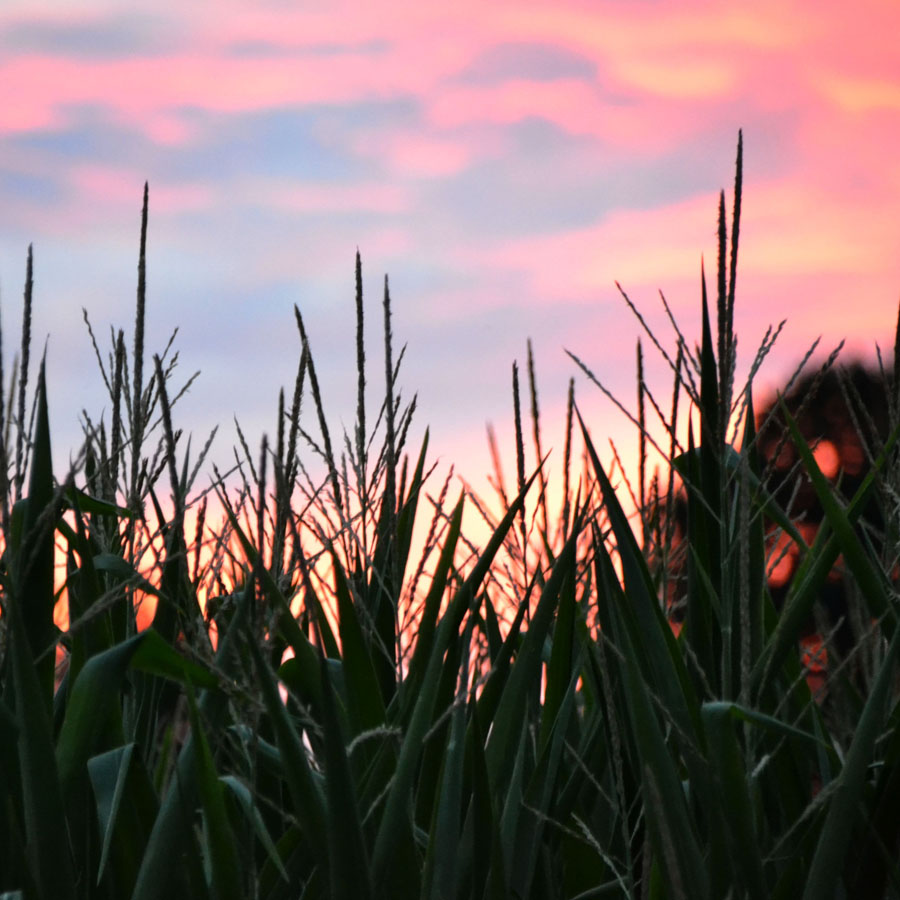As if covered in invisible glaze, her bread bakes pink. She buys new flour, new yeast, sends it into the oven a butter yellow moon. Still it comes out pink, a darker shade each time.
“It must be the water here. We’ll get filtered; don’t eat it,” her husband instructs, disappears back into his monograph.
This is the last move, he has promised. The department here is well-resourced, his position tenure track. She’ll find another gig teaching painting soon, how hard can it be in a college town. Now they can put down roots. Yet she feels as if she is watching her life from the ceilings fans, or carrying it on her back like wet cement. Out their bay windows, the sunsets are trying so hard across the soy-corn sky. She drifts back into the kitchen, closes the blinds.
Her bread is Barbie dream house pink, millennial pink, chapped lip pink. It smells just like her usual bread, as rich and warm as the loaves she’s made them in three different kitchens, in three different states. Before trashing it, she eats a pinch here, a slice there. At first it tastes like her childhood, like pool french fries after a swim meet, like her mother’s rose water perfume. Then it tastes like the sandalwood incense her college roommate used to burn, the girl she used to call her twin sister, a poet whose father had also left her, who also wanted to make a life around art.
Then it tastes of her first date with her husband, when she was still in undergrad and he was a grad student, the T.A. for her required Western History course, tastes of the penne vodka he recommended she order at the Italian place, and the mints he swallowed in the bathroom before kissing her at the Gillian Welch concert he’d gotten them tickets to as a surprise. How bowled over she’d been. The boys she knew never planned, just wanted to have drinks, “see where the night takes us,” played her pop punk in their cars.
The first date bread makes her body ache with hunger, as if consuming it does the opposite of its purpose, ignites new, hidden needs. She eats all of it, the last bread she will eat in this house. The next one comes out bloody, beating like a heart, slick and oblong like a baby with no face, like the child they will not have. She serves it to her husband as if it is a normal bread, places it on the table beside the roast chicken.
While he stares, she runs up to their bedroom, retrieves the bag she has already packed full of bathing suits faded by distant oceans, stiff, frayed brushes that just need a wash, a dash of rabbit skin glue, half-empty oils that are still good, and a hundred other things, all of it light on her shoulders.

